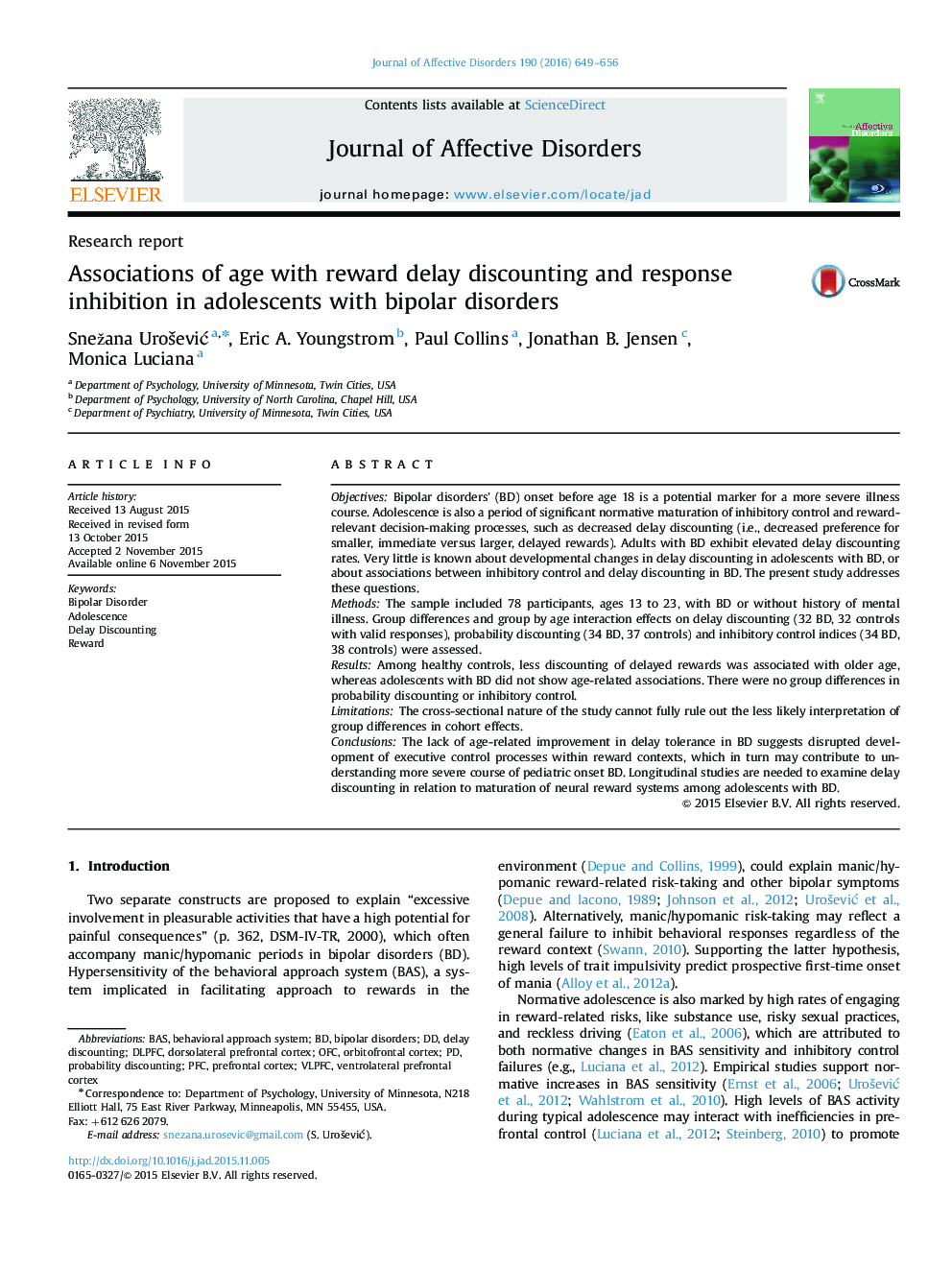| کد مقاله | کد نشریه | سال انتشار | مقاله انگلیسی | نسخه تمام متن |
|---|---|---|---|---|
| 6230806 | 1608135 | 2016 | 8 صفحه PDF | دانلود رایگان |
- We examined delay discounting in adolescents with and without bipolar disorders.
- With older age, healthy adolescents discounted delayed rewards less.
- Adolescents with bipolar disorders did not show this age-related improvement.
- There were no group differences in probability discounting or inhibitory control.
- This suggests disrupted development of specific executive control processes in BD.
ObjectivesBipolar disorders' (BD) onset before age 18 is a potential marker for a more severe illness course. Adolescence is also a period of significant normative maturation of inhibitory control and reward-relevant decision-making processes, such as decreased delay discounting (i.e., decreased preference for smaller, immediate versus larger, delayed rewards). Adults with BD exhibit elevated delay discounting rates. Very little is known about developmental changes in delay discounting in adolescents with BD, or about associations between inhibitory control and delay discounting in BD. The present study addresses these questions.MethodsThe sample included 78 participants, ages 13 to 23, with BD or without history of mental illness. Group differences and group by age interaction effects on delay discounting (32 BD, 32 controls with valid responses), probability discounting (34 BD, 37 controls) and inhibitory control indices (34 BD, 38 controls) were assessed.ResultsAmong healthy controls, less discounting of delayed rewards was associated with older age, whereas adolescents with BD did not show age-related associations. There were no group differences in probability discounting or inhibitory control.LimitationsThe cross-sectional nature of the study cannot fully rule out the less likely interpretation of group differences in cohort effects.ConclusionsThe lack of age-related improvement in delay tolerance in BD suggests disrupted development of executive control processes within reward contexts, which in turn may contribute to understanding more severe course of pediatric onset BD. Longitudinal studies are needed to examine delay discounting in relation to maturation of neural reward systems among adolescents with BD.
Journal: Journal of Affective Disorders - Volume 190, 15 January 2016, Pages 649-656
